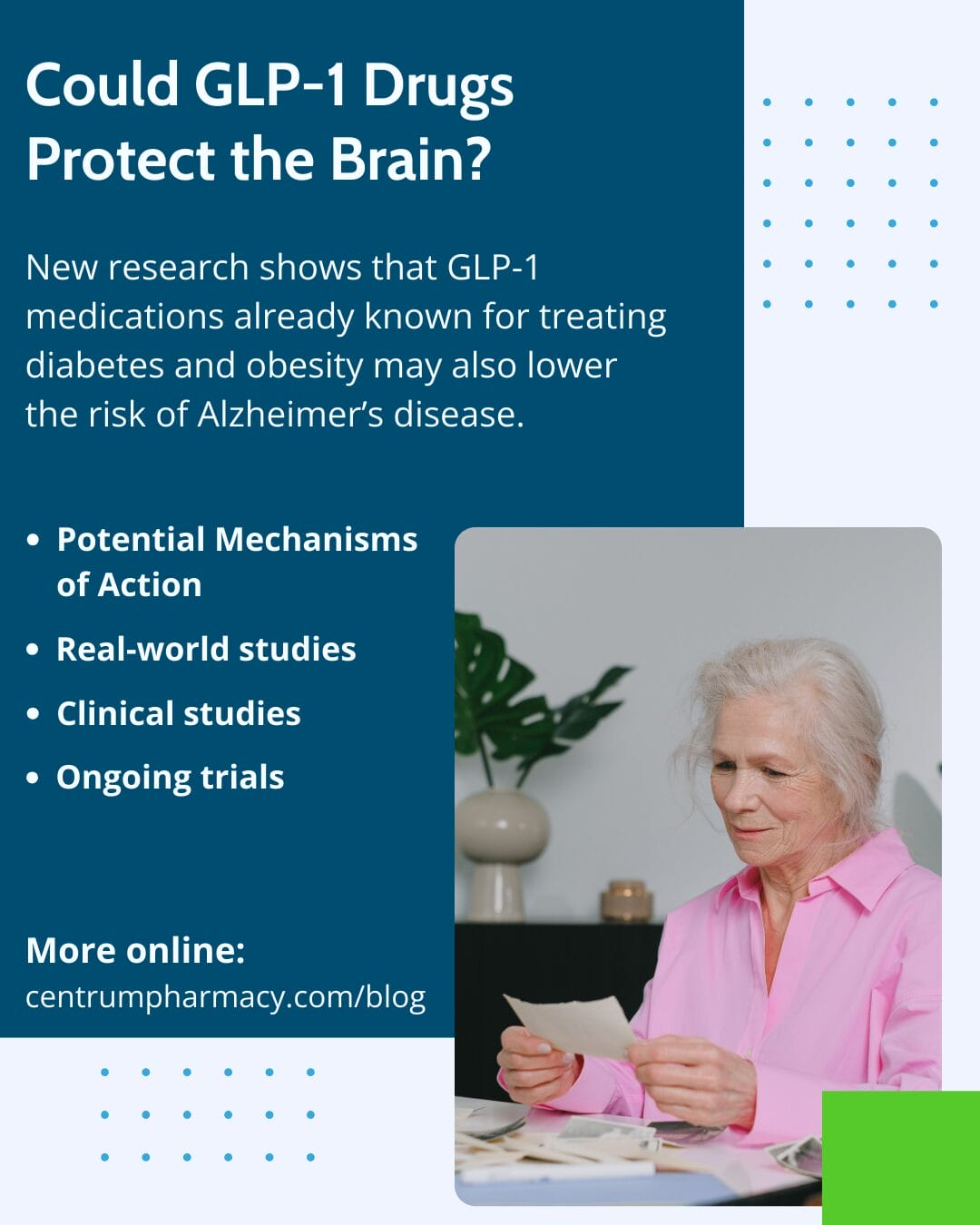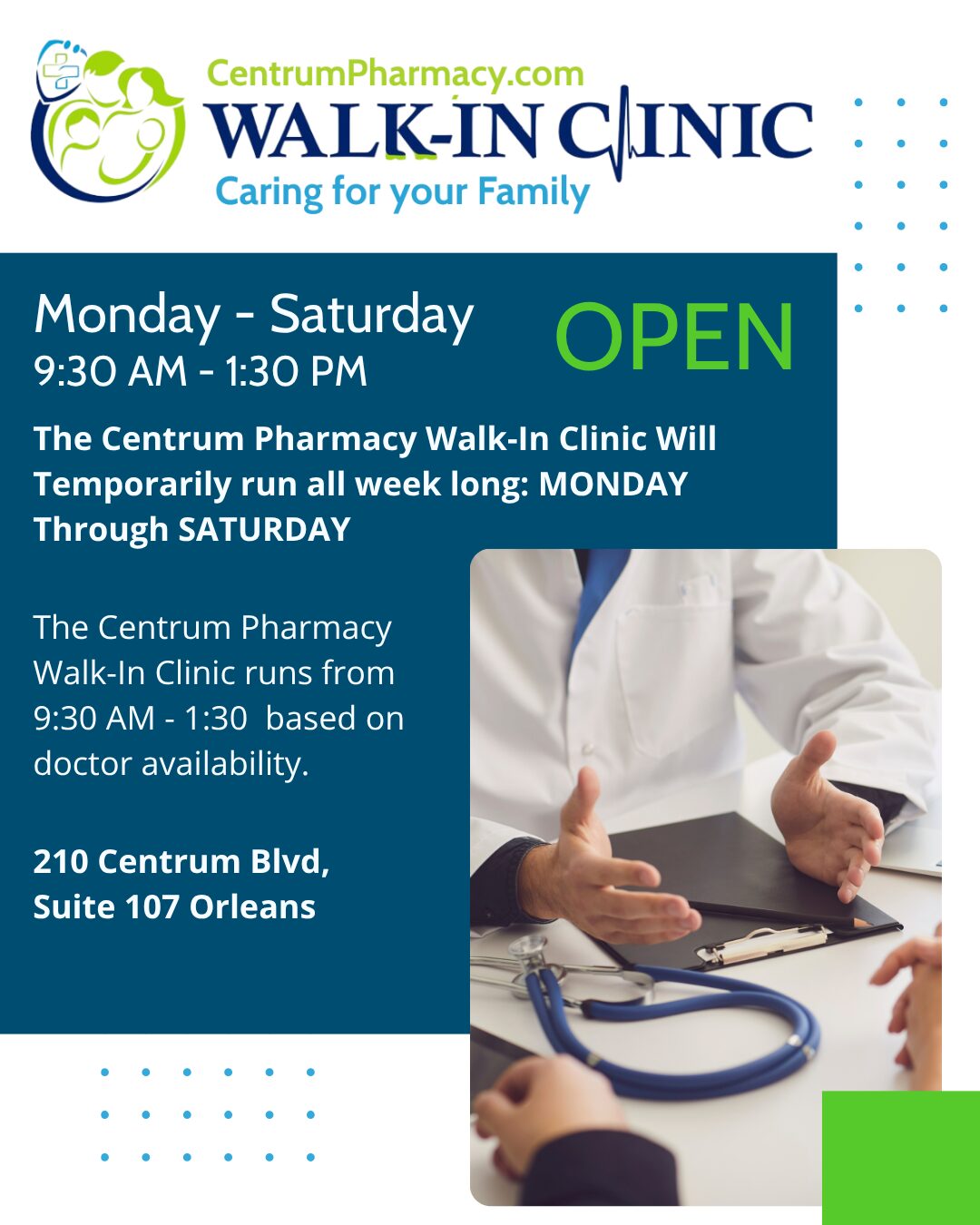Alzheimer’s disease is one of the most pressing health challenges of our time, affecting millions of families worldwide. While research into treatments continues, an unexpected group of medications is drawing global attention: GLP-1 receptor agonists, the same drugs that revolutionized diabetes and weight management.
Medications such as Ozempic (semaglutide), Wegovy (semaglutide for weight loss), and Mounjaro (tirzepatide) are now being investigated for their potential to reduce the risk of Alzheimer’s disease and related dementias (ADRD). Early studies suggest these drugs may protect brain health through several mechanisms:
Potential Mechanisms of Action
- Reduced Neuroinflammation & Oxidative Stress: GLP-1s may lower harmful brain inflammation and oxidative damage, both strongly linked to Alzheimer’s.
- Amyloid Plaque & Tau Tangle Reduction: Preclinical data show these drugs may help prevent or reduce toxic protein build-up in the brain.
- Improved Brain Insulin Resistance: Since insulin resistance is a shared pathway between Type 2 diabetes and Alzheimer’s, better glucose metabolism may benefit brain function.
- Neurotrophic Support: GLP-1s may enhance survival and function of brain cells.
Evidence So Far
- Real-world studies: Analyses of large diabetes patient datasets show GLP-1 use is linked with a substantially lower risk of dementia, compared with other medications.
- Clinical studies: Early human trials, such as those with liraglutide, hint at slower cognitive decline.
- Ongoing trials: Large-scale studies like the EVOKE trials for semaglutide aim to confirm whether GLP-1s truly slow or prevent Alzheimer’s. Results are expected in late 2025.
- Dulaglutide’s potential: One major study involving nearly 9,000 participants suggested dulaglutide may be particularly effective, thanks to its ability to enter brain tissue at higher levels than other GLP-1s.
Next Steps
While findings are encouraging, much is still unknown:
- Confirmation needed: Current results are preliminary and need validation in large, long-term studies.
- Safety questions: Long-term brain effects of GLP-1 drugs remain under investigation.
- Awaiting trials: The coming years will be crucial in determining whether GLP-1s can move from diabetes drugs to Alzheimer’s prevention tools.
What This Means for Patients and Families
At Centrum Pharmacy, we understand the hope these studies bring. But we also emphasize the importance of caution. These drugs are not yet approved for Alzheimer’s prevention or treatment, and more research is required before they can be recommended for brain health.
Meanwhile, proven strategies like staying physically active, eating a heart-healthy diet, managing blood sugar and blood pressure, and keeping socially engaged remain the best ways to protect memory and cognition.
Centrum Pharmacy remains committed to advancing conversations around prevention and supporting families navigating Alzheimer’s disease.
Stay Connected with Centrum Pharmacy!
If you found this article helpful, don’t forget to like, share, and Follow to stay up to date on our latest health tips, pharmacy updates, and wellness advice.
Come for the Convenience, Stay for the Service.
Caring for Your Family Since 1999
Disclaimer: The medical information on this site is provided as an information resource only and is not to be used or relied on for any diagnostic or treatment purposes. This information does not substitute for professional diagnosis and treatment. Please do not initiate, modify, or discontinue any treatment, medication, or supplement solely based on this information. Always seek the advice of your healthcare provider first. Full Disclaimer.




